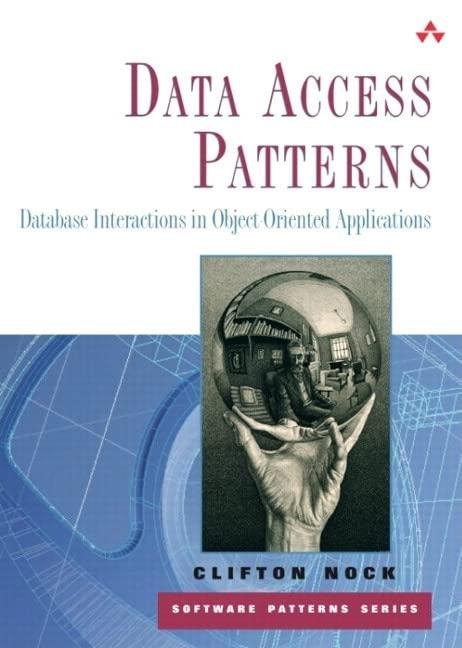Question
Please convert this to pseudocode having trouble understanding it Its java that adds two linked lists together that are numbers // Java program to add
Please convert this to pseudocode having trouble understanding it
Its java that adds two linked lists together that are numbers
// Java program to add two numbers
// represented by linked list
class LinkedList {
static Node head1, head2;
static class Node {
int data;
Node next;
Node(int d)
{
data = d;
next = null;
}
}
/* Adds contents of two linked
lists and return the head node
of resultant list */
Node addTwoLists(Node first, Node second)
{
// res is head node of the resultant list
Node res = null;
Node prev = null;
Node temp = null;
int carry = 0, sum;
// while both lists exist
while (first != null || second != null) {
// Calculate value of next
// digit in resultant list.
// The next digit is sum
// of following things
// (i) Carry
// (ii) Next digit of first
// list (if there is a next digit)
// (ii) Next digit of second
// list (if there is a next digit)
sum = carry + (first != null ? first.data : 0)
+ (second != null ? second.data : 0);
// update carry for next calulation
carry = (sum >= 10) ? 1 : 0;
// update sum if it is greater than 10
sum = sum % 10;
// Create a new node with sum as data
temp = new Node(sum);
// if this is the first node then set
// it as head of the resultant list
if (res == null) {
res = temp;
}
// If this is not the first
// node then connect it to the rest.
else {
prev.next = temp;
}
// Set prev for next insertion
prev = temp;
// Move first and second pointers
// to next nodes
if (first != null) {
first = first.next;
}
if (second != null) {
second = second.next;
}
}
if (carry > 0) {
temp.next = new Node(carry);
}
// return head of the resultant list
return res;
}
/* Utility function to print a linked list */
void printList(Node head)
{
while (head != null) {
System.out.print(head.data + " ");
head = head.next;
}
System.out.println("");
}
// Driver Code
public static void main(String[] args)
{
LinkedList list = new LinkedList();
// creating first list
list.head1 = new Node(7);
list.head1.next = new Node(5);
list.head1.next.next = new Node(9);
list.head1.next.next.next = new Node(4);
list.head1.next.next.next.next = new Node(6);
System.out.print("First List is ");
list.printList(head1);
// creating seconnd list
list.head2 = new Node(8);
list.head2.next = new Node(4);
System.out.print("Second List is ");
list.printList(head2);
// add the two lists and see the result
Node rs = list.addTwoLists(head1, head2);
System.out.print("Resultant List is ");
list.printList(rs);
}
}
Step by Step Solution
There are 3 Steps involved in it
Step: 1

Get Instant Access to Expert-Tailored Solutions
See step-by-step solutions with expert insights and AI powered tools for academic success
Step: 2

Step: 3

Ace Your Homework with AI
Get the answers you need in no time with our AI-driven, step-by-step assistance
Get Started


